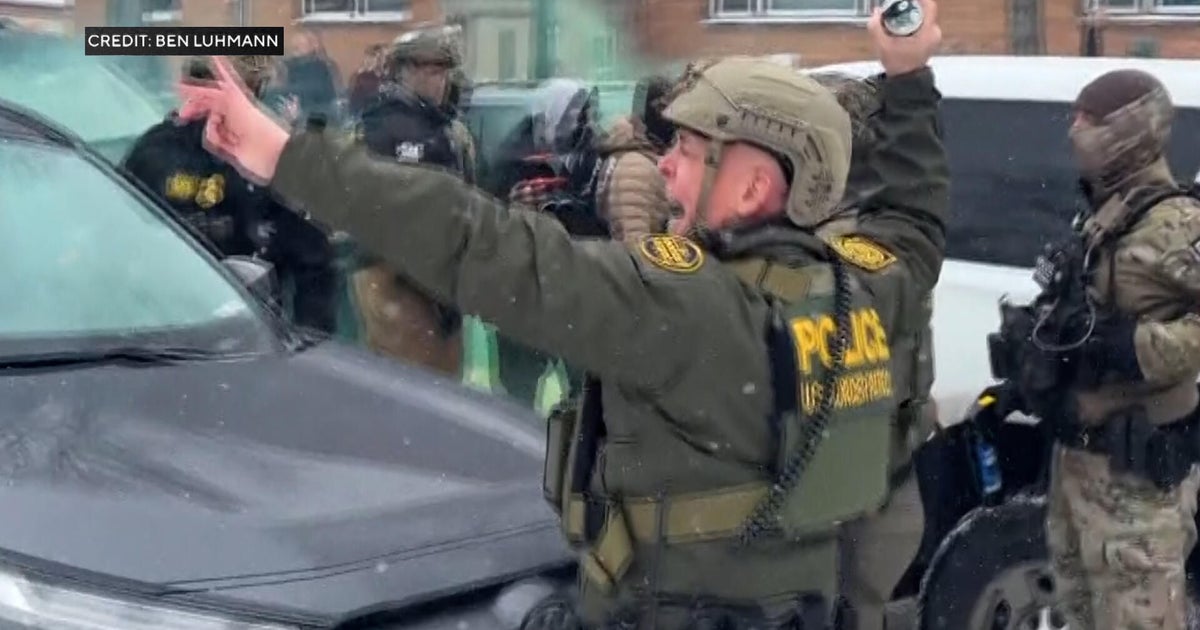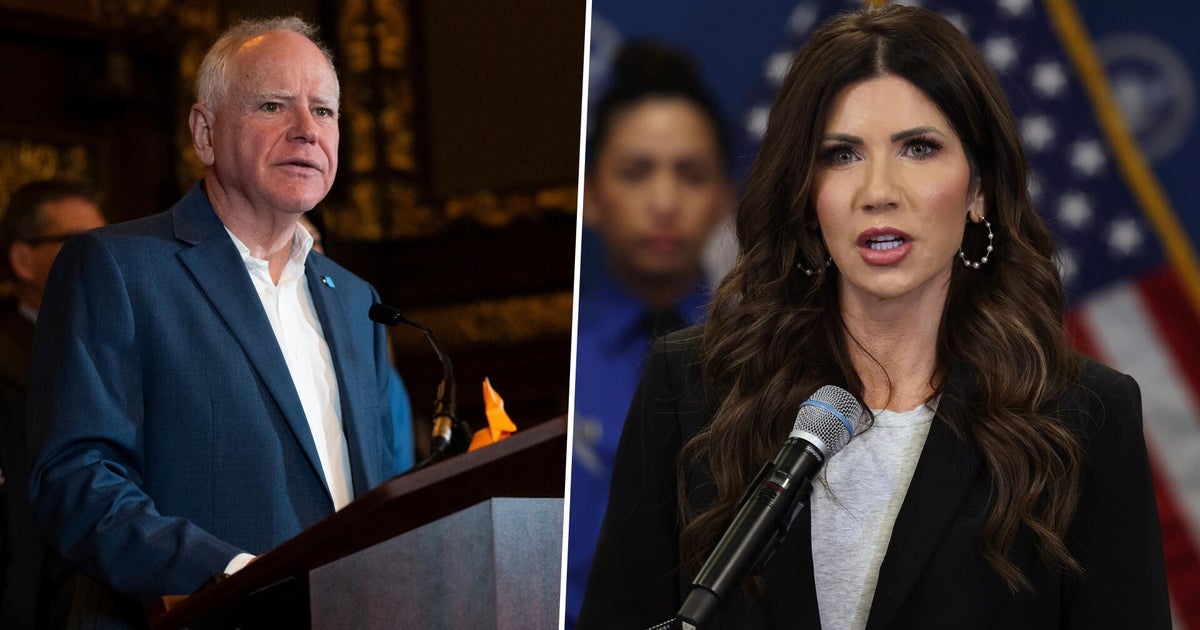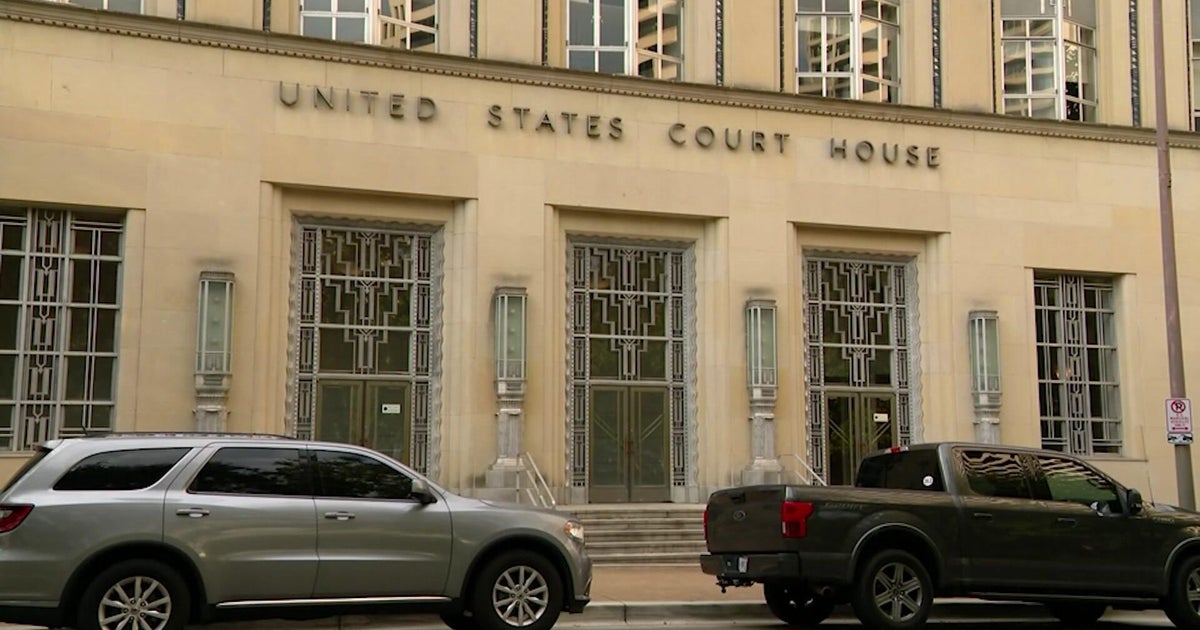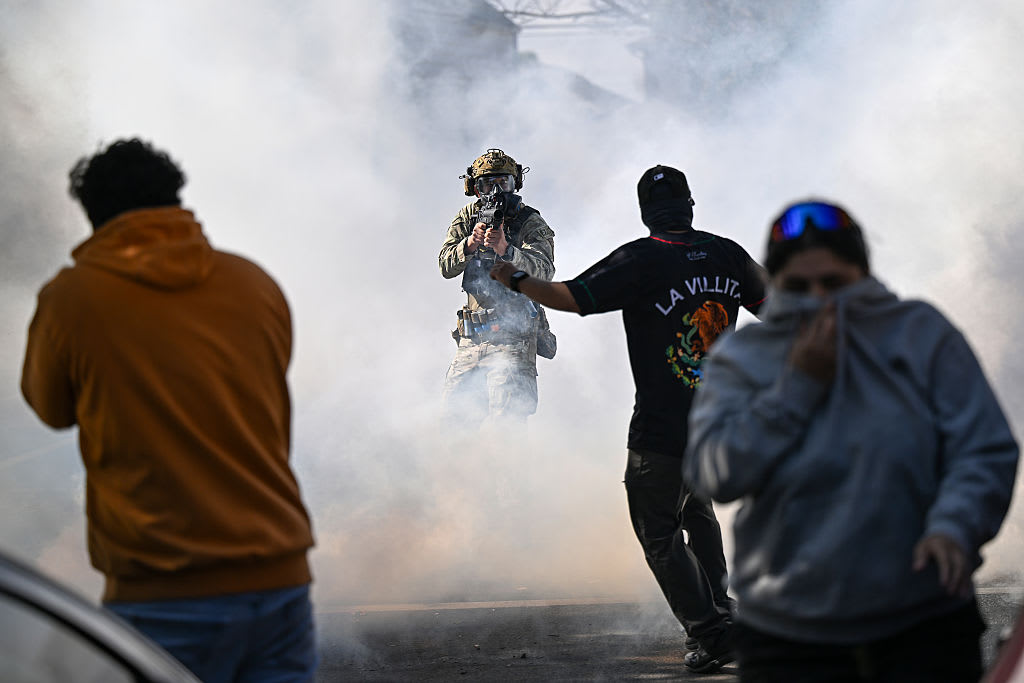Fast-track deportation program for migrant families off to slow start as border crossings rise
The U.S. has carried out fewer than 100 deportations under a program the Biden administration set up in May to deter unlawful entries by migrant families, a fraction of the tens of thousands of families processed by border agents during that time period, government data obtained by CBS News show.
The figures, which have not been previously reported, undercut the Biden administration's intensifying efforts to showcase deportations of families through video releases and press statements and highlight the longstanding legal, humanitarian and operational challenges faced by the U.S. government when processing migrant parents and children.
The policy, known as Family Expedited Removal Management, was announced on May 11 as an effort to impose "immigration consequences" on parents who crossed the U.S.-Mexico border unlawfully with their children. It requires the heads of household of certain families to wear an ankle monitor and comply with a nightly home curfew while officials conduct a preliminary review of the family's asylum claim.
Under the Immigration and Customs Enforcement initiative, families who pass what are known as "credible fear" interviews are allowed to stay in the U.S. pending a decision from an immigration judge on the full merits of their asylum claim. Those who fail these interviews are supposed to be deported to their home country within weeks of their arrival, unless they successfully appeal.
Since May, more than 2,600 migrants, including 1,500 heads of household, have been enrolled in the curfew program, according to Department of Homeland Security data. Roughly 80 migrant parents and children had been deported under the initiative as of last week, a U.S. official told CBS News, requesting anonymity to discuss internal statistics.
Between May and the end of July, 136,452 parents and children traveling as families were processed by U.S. border agents after crossing the southern border, according to federal data. In July alone, more than 60,000 migrant parents and children entered Border Patrol custody as families — a 92% spike from June.
The curfew program only applies to migrant families who claim asylum after being placed in expedited removal proceedings, a fast-track deportation process dating back to the 1990s. Those who don't claim asylum can be deported under that process without a court hearing. The Biden administration is also using a separate program to expedite asylum reviews for families released from U.S. border custody with court notices, though those cases generally take about a year to complete.
Over the past few months, the Biden administration's border strategy has relied on directing tens of thousands of migrants to enter the U.S. legally each month, while imposing higher asylum standards for those who enter the country illegally. The administration credited the strategy for a two-year low in border crossings in June. But the number of migrants crossing the southern border illegally rose by 33% in July.
The recent increase in family arrivals along the U.S.-Mexico has alarmed the Biden administration, prompting top aides at the White House and the Department of Homeland Security to pressure ICE to increase enrollments in the curfew program, two current and former U.S. officials told CBS News. ICE is currently expanding the program to 40 cities throughout the U.S., after initially starting with four cities.
In a statement to CBS News, Ruth Clemens, a spokesperson for DHS, called the curfew program "one element of DHS's operations to enforce U.S. immigration law and to remove individuals and families without a legal basis to stay in the country."
Since May, Clemens noted, the U.S. has repatriated more than 200,000 migrants to their home countries or Mexico, including 15,000 parents and children processed as families. Many of those repatriations were "voluntary returns," which, unlike formal deportations, do not banish migrants from the U.S. for a certain number of years. Still, the 15,000 repatriation figure would represent roughly 11% of the 136,452 migrant parents and children apprehended by Border Patrol agents as family members during that time period.
Theresa Cardinal Brown, a former DHS immigration official under Presidents Barack Obama and George W. Bush, said the curfew program's low number of enrollments and deportations undermine the Biden administration's efforts to convince families that they will be deported if they enter the U.S. unlawfully.
In recent weeks, administration officials have repeatedly warned families about the threat of deportation if they cross the southern border illegally, while ICE has been regularly releasing videos depicting migrant parents and children being deported. The videos show migrant mothers with small children in their arms boarding deportation flights, and boys and girls awaiting to be deported.
"ICE keeps saying, 'we deport families. See, we're showing you pictures of the families we're deporting.' They keep promoting that. They're trying to hope that that message will come across. But the reality is that the majority of families are not deported," said Cardinal Brown, now a senior adviser at the Bipartisan Policy Center, a Washington think tank.
Cardinal Brown said a mix of "desperation" and "opportunity" is likely fueling the rise in migrant family arrivals, as families flee poverty-stricken countries knowing there's a "high chance" they will be released in the U.S. if they cross the border. But she said the Biden administration has few options to dissuade migrant families from coming to the U.S., due to legal and operational limits, as well as humanitarian considerations.
It's a challenge that has bedeviled Democratic and Republican administrations for nearly a decade since 2014, when the Obama administration faced the first large-scale arrival of tens of thousands of unaccompanied minors and families with children to the U.S. southern border. Before then, most migrants apprehended by Border Patrol were single adults.
The Obama administration set up immigration detention centers for families to deter migrant family arrivals. But in 2015, a federal judge ruled that the government should generally not hold migrant children for longer than 20 days, significantly restricting family detention.
The Trump administration in 2018 separated migrant children from their families, and prosecuted their parents, until the crackdown ended due to public uproar and a court ruling. It also sought to expand family detention but its efforts were blocked by federal courts. After a record spike in migrant family crossings in the spring of 2019, the Trump administration returned tens of thousands of migrants, including families, to Mexico and instructed them to await their asylum hearings there.
The Biden administration discontinued the so-called Remain-in-Mexico policy and family detention in 2021 and started relying on "alternatives to detention" programs that use GPS monitors, phones and other means to track migrant families released from border custody.
Earlier this year, the Biden administration considered reinstating family detention, but instead announced the curfew program. Advocates and many Democrats have long opposed family detention, citing studies that show its negative impact on the psychological well-being of children.
While it's been implemented on a small scale so far, the curfew program has garnered criticism from advocates for migrants, who say it makes it too difficult for families to secure legal counsel due to the expedited adjudication period.
Azadeh Erfani, a policy analyst at the National Immigrant Justice Center, an advocacy group that has represented several families enrolled in the curfew initiative, said the ankle monitors placed on parents are unnecessarily punitive. Erfani's group is calling on the Biden administration to end the policy.
The program's "rushed deportations" Erfani said, "risk erasing entire families' — including small children's — right to exist, free of persecution or torture."





